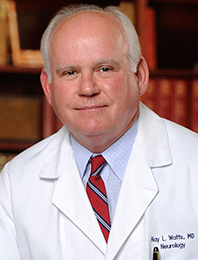State governor says UAB’s precision medicine center will ‘stimulate major strides in science and medicine and serve as a wise investment with a great return’

In another indicator that precision medicine is becoming increasingly recognized by academia, the University of Alabama at Birmingham (UAB) has recently begun construction on a new precision medicine center estimated to cost more than $78 million. This is noteworthy because many important developments in healthcare have been led by academia. Healthcare leaders will want to be aware of such precision medicine trends at leading academic institutions.
The UAB formally broke ground in early April for the new Altec/Styslinger Genomic Medicine and Data Sciences Building and the Marnix E. Heersink Institute for Biomedical Innovation Conference Center. Construction for the 175,000-square-foot genomics center is expected to take about two years and is scheduled to be completed in spring of 2024.
This undertaking demonstrates that academic leaders see precision medicine as a core component of advancing personalized medical treatments and technologies, and that UAB leaders see this new genomics center as a way to promote UAB as a leader in modern medical science.
In a UAB news release that emphasized the areas of genomics UAB would be focusing on, neurologist and UAB President Ray Watts, MD, said, “Advancements in precision medicine, informatics, and data sciences will now be accelerated, and we will gain greater understanding of the roles our genes and the environment play in major human diseases.
These discoveries,” Watts added, “will lead to the development of new lifesaving treatments.”
Alabama’s Governor Says UAB’s Precision Medicine Center Will Stimulate Economic Growth
While UAB views the new precision medicine center as a way to promote its institution as an academic leader in medicine and advance medical science, this precision medicine-focused initiative is also viewed favorably by the state government.
Multiple state and local officials attended the ground-breaking ceremony, and the governor of Alabama, who sent a representative, also weighed in on the new project.
“This is a signature investment for the state of Alabama and a bold project that will have a real impact on our economy and the long-term health of our citizens far beyond the dollars given,” said Gov. Kay Ivey in the UAB news release. “It will stimulate major strides in science and medicine and serve as a wise investment with a great return that serves all Alabamians.”
Pancreatic cancer surgeon Selwyn Vickers, MD, is dean of the Heersink School of Medicine at UAB and CEO of the UAB Health System. In the news release, he explained why the new precision medicine center is seen as a potential catalyst for economic growth in the region.
“When an investigator gets a federal grant, many of which are more than $1 million, [his/her] lab is like a startup company with employees often making more than $50,000 annually,” he stated.
“This building will house dozens of these ‘small companies’ that would not be in Alabama if it weren’t for UAB and its research engine,” Vickers continued. “It is a constellation of companies providing jobs at a high level and attracting new talent that will increase our competitive advantage in supporting researchers who will in turn bolster our economy and aid in the care of all Alabamians.”
Other Academic Precision Medicine Initiatives
While UAB is taking a large step in establishing its position as a leader in precision medicine, this undertaking is part of a broader trend by academic institutions to embrace the benefits precision medicine can offer. Many universities are beginning to create new precision medicine centers or new academic programs specifically addressing precision medicine.
One example is a new master’s degree program recently established by Yale University. Yale’s School of Medicine and School of Engineering and Applied Science have collaborated to form a new personalized medicine and applied engineering master’s program that combines medicine and engineering knowledge to develop and provide personalized treatment options.
According to Lisa Lattanza, MD, the new program will focus on leveraging new technologies, such as 3D printing, virtual reality, and artificial intelligence, to provide individualized treatments. Lattanza is the chair of the Department of Orthopedics and Rehabilitation at the Yale School of Medicine.
“This technology allows us to treat every patient as an individual to formulate a treatment plan, whether it’s a surgical plan or a medical plan that’s devised specifically for that individual rather than something that is more broad or general,” Lattanza said in a Yale News article. “There are multiple ways that this is going to impact patient care, whether it’s from the 3D cellular printing aspect or the individualized surgery, or even projects that would involve better ways of educating our students and coming through either side on the medical school side or the engineering side in terms of accessing three-dimensional anatomy.”
From new precision medicine facilities to new academic degrees centered around personalized medicine, academic centers worldwide are increasingly embracing precision medicine as the next step in the evolution of modern medicine. Healthcare leaders would be wise to monitor this trend in academia, as academic trends often precede disruptive changes in clinical practice.
—Caleb Williams
Related Information:
Yale to Offer First-in-the-Nation Joint Engineering and Medical School Master’s Degree
